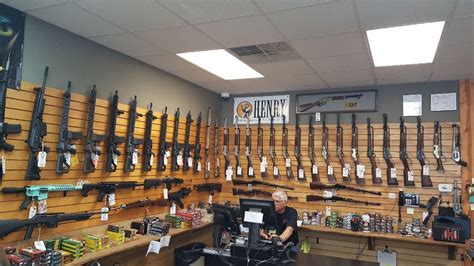
Categories:
Local hunting events are a wonderful way to engage with nature, hone outdoor skills, and connect with community members who share similar interests. These events, often organized by local chapters of national hunting associations or independent community groups, provide opportunities for both novice and experienced hunters to immerse themselves in the traditions and practices of hunting. They offer a structured environment where attendees can learn about various hunting techniques, the importance of wildlife conservation, and ethical hunting practices.
The community aspect of local hunting events fosters a sense of camaraderie among participants. These gatherings often start with introductory sessions that cover essential safety measures and regulations that every hunter must adhere to, ensuring that all activities are conducted responsibly and sustainably. For new hunters, these events serve as an excellent introduction to the sport, offering workshops on tracking, spotting game, and using hunting equipment safely.
Experienced hunters, on the other hand, can refine their skills and even partake in friendly competitions that test their abilities, ranging from archery to marksmanship.
Local hunting events also emphasize the importance of conservation and educate attendees about the ecosystems they interact with, the wildlife habitat they endeavor to protect, and the delicate balance that must be maintained for future generations. By participating in these events, hunters can contribute to conservation efforts, as many of these events partner with conservation organizations. The funds raised through registration fees or donations are often directed towards local conservation projects, wildlife management, and preservation of hunting habitats.
In addition to providing practical skills and raising awareness about environmental stewardship, local hunting events also offer social benefits. They can strengthen community bonds, provide platforms for exchanging hunting stories and tips, and ensure that the rich cultural heritage associated with hunting is preserved across generations. These events balance recreation with responsibility, making them a pivotal aspect of the hunting community’s calendar.
Local hunting events offer a diverse array of experiences to cater to the varied interests and skill levels of hunting enthusiasts. These events not only serve as excellent opportunities for seasoned hunters to hone their skills but also allow beginners to learn from experienced mentors. One common type of hunting event is the organized hunt, which is often held on private or public lands.
These events may target specific species such as deer, turkey, or upland birds, and are typically regulated to ensure sustainable wildlife management. Participants in organized hunts are usually required to adhere to strict guidelines and, in many cases, need to secure the proper permits or licenses in advance.
Another popular event is the hunting tournament or competition, where hunters compete to harvest the largest or most significant number of a particular species. These competitions often include specific rules regarding weapon types, hunting zones, and time limits, fostering a spirit of camaraderie and friendly rivalry among participants. In addition to sharpening hunting skills, these tournaments often raise awareness about wildlife conservation and contribute to local conservation projects through entry fees and sponsorships.
Educational and training workshops are also a staple of local hunting events. These workshops cater to novice and seasoned hunters alike, offering sessions on topics such as tracking techniques, marksmanship, safety protocols, and the ethical considerations of hunting. Events like these often feature hands-on training and can include opportunities to practice shooting skills in a controlled environment. Moreover, hunting gear demonstrations from various vendors provide attendees with insights into the latest equipment and technology, alongside advice from experts on best practices.
Social gatherings, including hunting expos and festivals, bring together the hunting community to share stories and experiences. Such events can feature guest speakers, panel discussions, and exhibitions highlighting the heritage and culture of hunting, reinforcing a sense of community and tradition among enthusiasts. Through these diverse types of hunting events, individuals can engage with the sport at various levels, fostering a deeper connection to nature and the art of hunting.
Participating in a local hunting event can be a thrilling experience, offering a chance to immerse oneself in nature, connect with fellow outdoor enthusiasts, and contribute to wildlife management efforts. To join such an event, it’s essential to be well-prepared and informed about the specific requirements and regulations. The initial step is to research upcoming hunting events in your area. These can often be found through state wildlife agencies, hunting clubs, or community bulletin boards.
Make sure to note the dates, location, and any specific game being targeted.
Once you’ve identified an event, it’s crucial to understand the rules and regulations associated with it. Each event may have its own set of guidelines, such as licensing requirements, permitted weapons, safety protocols, and limits on game. Ensure you have the necessary licenses and permits, which can typically be obtained through your state’s wildlife or natural resources department. Additionally, familiarize yourself with the boundaries of the hunting area and any environmental considerations that may affect the event.
Preparation is key to a successful hunting experience. Ensure your equipment is in good working order, and take time to practice your marksmanship if necessary. It’s also a good idea to review hunting safety courses or refresh your knowledge of best practices for handling guns. Consider joining a hunting club or group if you’re a novice, as seasoned hunters can provide valuable guidance and companionship.
On the day of the event, arrive early to allow time for registration and any safety briefings required by the organizers. Pay close attention to any last-minute instructions or changes to the schedule. Throughout the event, prioritize safety and wildlife conservation, following all established guidelines and showing respect for the environment. By approaching the event with preparation, knowledge, and respect, you can ensure a fulfilling and responsible hunting experience.
In any local hunting event, ensuring the safety of all participants is paramount. Adhering to safety guidelines and regulations is essential to prevent accidents and ensure a responsible hunting experience. Before participating in any hunting event, hunters should familiarize themselves with the specific rules and regulations governing the area and species they intend to hunt. This includes obtaining the necessary licenses and permits, which ensures legality and helps with wildlife management and conservation efforts.
It is crucial for hunters to wear appropriate safety gear; blaze orange or other high-visibility clothing is often required to distinguish hunters from game and prevent accidents.
Gun safety is another critical aspect of hunting. Participants should always treat their guns as if they are loaded, ensuring that the muzzle is pointed in a safe direction and that the safety is engaged until it is time to shoot. Hunters must also be aware of their surroundings, keeping a clear line of sight and only shooting when they have a clear target and a safe backstop to avoid unintended harm.
Communication between hunting parties enhances safety and coordination, and participants should use whistles, radios, or mobile phones to stay connected, especially in large or densely wooded areas.
Additionally, it is vital to stay informed about the weather and terrain of the hunting location. Adverse weather conditions can pose risks, making it imperative to check forecasts and plan accordingly, including carrying appropriate gear. Hunters should also be aware of local wildlife and habitats, respecting closed areas or protected species to preserve the environment and comply with conservation laws. By staying informed, respectful, and prepared, hunting events can be safe and enjoyable for everyone involved.
Continuous education on hunting ethics and safety can further enhance the protection of hunters, non-participants, and wildlife alike, ensuring these events continue sustainably for future generations.
When preparing for local hunting events, selecting the appropriate equipment and gear is crucial to ensuring not only success but also safety and comfort. The primary piece of equipment for any hunter is, of course, the weapon, which can range from rifles and shotguns to bows, depending on the type of game being pursued and the regulations in place. It’s essential to choose a weapon that not only complies with local laws but also fits your skill level and personal preference.
Accompanying your weapon, suitable ammunition or arrows designed for your chosen game type are paramount for an ethical hunt.
Clothing is another critical aspect of preparation. Hunters should dress in layers to accommodate varying weather conditions, always including moisture-wicking base layers to manage sweat and thermal layers for warmth. Camouflage or hunter orange is typically required to enhance stealth while maintaining visibility to other hunters, depending on local regulations. Good quality, waterproof boots with appropriate insulation are vital to navigating various terrains comfortably and safely.
Field accessories like binoculars, rangefinders, and calls can significantly enhance the hunting experience by increasing the ability to spot and accurately identify game from a distance. A reliable GPS or map and compass should also be part of your gear to navigate through unfamiliar territory effectively. A sturdy backpack is necessary to carry your supplies, including water, snacks, and possibly a first aid kit for any unforeseen injuries.
Safety gear such as a well-stocked first aid kit and a blaze orange vest should never be overlooked. Moreover, carrying communication devices, like a mobile phone or radio, ensures you can call for help if needed. Finally, having a suitable knife for field dressing the game and additional equipment for transporting it should be considered critical for post-hunt processing. Practicing with all this gear ahead of your event will ensure you are comfortable and efficient, directly contributing to a successful and enjoyable hunting experience.
Participating in local hunting events offers a wide range of benefits that extend beyond the simple pursuit of game. These events serve as a vital platform for community engagement, where enthusiasts from varied backgrounds come together to share their passion for hunting. This sense of community can foster new friendships and connections, creating a network of like-minded individuals who can share tips, stories, and insights.
Moreover, local hunting events provide an educational experience, especially for novices. Many of these gatherings include workshops or guided hunts led by seasoned hunters, offering a hands-on opportunity to learn about best practices, safety measures, and sustainable hunting techniques. This knowledge transfer preserves traditional hunting practices and promotes conservation and ethical hunting standards.
Engaging in local hunting events also supports local economies, as they often attract participants from surrounding areas who spend money on accommodations, food, and supplies. This influx of visitors can significantly benefit rural communities, which might rely heavily on such events for economic stimulation. Additionally, these events can encourage an appreciation for nature and wildlife. As hunters spend time in natural settings, they develop a deeper understanding and respect for the ecosystems they interact with, often becoming advocates for conservation efforts and habitat preservation.
For more experienced hunters, participating in local events can present a new set of challenges and opportunities to refine skills. Competitive elements in some events test the hunters’ abilities, offering a chance to improve marksmanship, tracking, and other essential skills. Furthermore, local hunting events can provide a sense of tradition and cultural heritage, often grounded in the history of the area.
By taking part in these activities, participants help to preserve this cultural legacy, ensuring its continuity for future generations. Overall, local hunting events offer a multifaceted array of benefits that enrich the participants and the community at large.
As interest in local hunting events continues to grow, enthusiasts are eagerly preparing for an exciting lineup of activities designed to cater to both novice and seasoned hunters. As the season approaches, there are numerous events scheduled to celebrate the tradition and skill of hunting within the community and surrounding areas. One of the most anticipated events is the annual fall hunting tournament, set to take place in the expansive grounds of Pine Ridge Reserve.
Hunters will have the opportunity to participate in a variety of challenges, from tracking and marksmanship to game identification and processing workshops. These events are designed to test participants’ knowledge and skills while promoting ethical and responsible hunting practices.
In addition to competitive events, there will be a series of educational seminars and guided hunts led by experienced locals and certified wildlife experts. This year’s focus is on sustainable hunting techniques and wildlife conservation, aiming to equip participants with practices that will support the preservation of the natural environment. These seminars are perfect for anyone looking to deepen their understanding of the hunting ecosystem and engage in discussions about wildlife management.
To register for the upcoming local hunting events, interested participants must complete an online registration form available on the host organization’s website. The process is straightforward, requiring basic information and registration fees, which vary depending on the specific events and workshops selected. Early registration is highly encouraged, as spaces are limited and last year’s events sold out quickly. For those who prefer in-person registration, the local hunting association’s office offers in-house registration services.
Registration deadlines for most events are set two weeks before the start date, ensuring ample time for administrative preparation and confirmation emails. Participants are also reminded to acquire the necessary hunting licenses and permits, which can be obtained through respective state wildlife agencies. Access to these events promises a fulfilling experience for all involved, fostering a deeper connection with nature while honing essential hunting skills.








Colt
Colt M4 Carbine
Colt LE6920
Colt AR-15 A4
Daniel Defense
DDM4 V7
DDM4 V9
DDM4 V11
DDM4 ISR (Integrally Suppressed Rifle)
Smith & Wesson (S&W)
M&P15 Sport II
M&P15 Tactical
M&P15T
Bravo Company Manufacturing (BCM)
BCM Recce-16
BCM Recce-14
BCM MCMR Series
Aero Precision
M4E1 Series
AC-15
AR15 Pistol (Various Configurations)
Ruger
Ruger AR-556
Ruger SR-556
Ruger AR-556 MPR (Multi-Purpose Rifle)
Springfield Armory
Saint Victor
Saint Edge
Saint AR-15
PSA (Palmetto State Armory)
PSA PA-15
PSA AR-V
PSA Jakl (AR Pistol)
FN America
FN 15 Tactical Carbine
FN 15 Patrol
FN 15 DMR
Wilson Combat
Recon Tactical
Super Sniper
Protector Carbine
SIG Sauer
SIG M400 Tread
SIG M400 Elite
SIG M400 SDI
LWRC International
IC DI (Direct Impingement)
IC SPR
IC A5
Bushmaster Guns
XM-15 QRC
Bushmaster MOE
XM-15 Patrolman
Rock River Arms
LAR-15 Entry Tactical
LAR-15 Predator
LAR-15 Elite Comp
Stag Arms
Stag 15 Tactical
Stag 15L (Left-Handed Models)
Stag 15 Valkyrie
Noveske Rifleworks
Noveske Gen 4 N4
Noveske Space Invader (AR Pistol)
Noveske Recon
Anderson Manufacturing
AM-15 Optic Ready
AM-15 M4 Carbine
AM-15 Precision Rifle
Adams Arms
AA-15 Piston Rifle
P2 AARS (Adams Arms Rifle Series)
Black Rain Ordnance
SPEC15 Series
BRO Predator
Fallout 15
Diamondback Guns
DB15 Series
DB15CCMLB
DB15EB
Del-Ton Inc.
DTI-15
Del-Ton Echo 316H
Sierra 316M
Windham Weaponry
Windham SRC
Windham VEX-SS
Windham RMCS-4 (Caliber Conversion System)
Christensen Arms
CA-15 G2
CA-15 Recon
CA-15 Titanium Edition
Patriot Ordnance Factory (POF-USA)
Renegade Plus
P415 Edge
Revolution DI
LaRue Tactical
PredatAR
OBR (Optimized Battle Rifle)
LaRue Stealth 2.0
Battle Arms Development
Workhorse Patrol Carbine
BAD556-LW (Lightweight)
Authority Elite Rifle
Faxon Guns
Ascent AR-15
FX-19 (AR Pistol)
Streamline Ultralight Series
KE Arms
KE-15 SLT (Super Lightweight Tactical)
KE-15 Scout Carbine
Primary Weapons Systems (PWS)
MK1 MOD 2-M
MK116 PRO
MK107 (Piston AR Pistol)
ZEV Technologies
ZEV Core Elite Rifle
ZEV AR15 Billet Rifles
Franklin Armory
BFSIII AR-C1
Militia Model
F17-L (Chambered in .17 WSM)
Seekins Precision
SP15 DMR
NX15 Skeletonized Rifle
Havak Bravo
Aero Precision (Additional Models)
EPC-9 (Pistol Caliber ARs)
VG6 AR Rifles
Barrett Guns
REC7 DI
REC7 Gen II
CMMG
MK4 RCE
Resolute 300
Banshee (AR Pistol)
DPMS Panther Arms
Panther Oracle
Panther LR-308
H&K (Heckler & Koch)
HK MR556A1
HK416 (Military Variant)
Rock Island Armory (Armscor)
VR-80 Tactical AR (Shotgun AR Platform)
Troy Industries
Troy SPC-A3
Troy PAR (Pump Action AR)
Wilson Tactical
Tactical Recon AR
Protector Series
F1 Guns
FDR-15 Skeletonized Rifle
BDRx-15 Series
Juggernaut Tactical
JT-15
JT-10 Precision Rifle
AeroSurplus
Surplus AR-15 Rifles (Budget Models)
Thunder Tactical
AR-15 Basic Carbine
Tactical Builder Sets
Radical Guns
RF-15
Forged AR-Series
Dark Storm Industries
DS-15 Featureless Rifles
DS-10 Typhoon
DRD Tactical
Paratus
Aptus AR Rifles
Bear Creek Arsenal
BCA-15
AR Complete Upper Builds
Aero Survival Rifles (ASI)
ASR Tactical Series
Tactical Edge
WARFIGHTER Series
AR-15 Lightweight Rifles
Lone Star Armory
TX15 DMR
TX15 Carbine
HERA Arms
HERA H7
HERA AR-15 Lower Builds
IWI (Israeli Weapon Industries)
Zion-15
DRD Tactical
Tactical Modular Rifles
Quick-Takedown Rifles
V Seven Weapons
1776 Rifle
Hyperlite Rifle
Core Rifle Systems
Core15 Tac III
Core15 Patrol Rifle
Armalite (Original AR-15 Creator)
M15 Tactical
M15 A4 Carbine
DEF15 (Defensive Sporting Rifle Series)
PSA (Palmetto State Armory Additional Models)
PSAK-47 Hybrid (AR-AK Style Hybrid)
PSA Dagger (Pistol Caliber Configurations)
Odin Works
OTR-15
Odin Recon Rifle
Maxim Defense
MDX-508 PDX (Compact AR Pistol)
MDX-510 Rifle